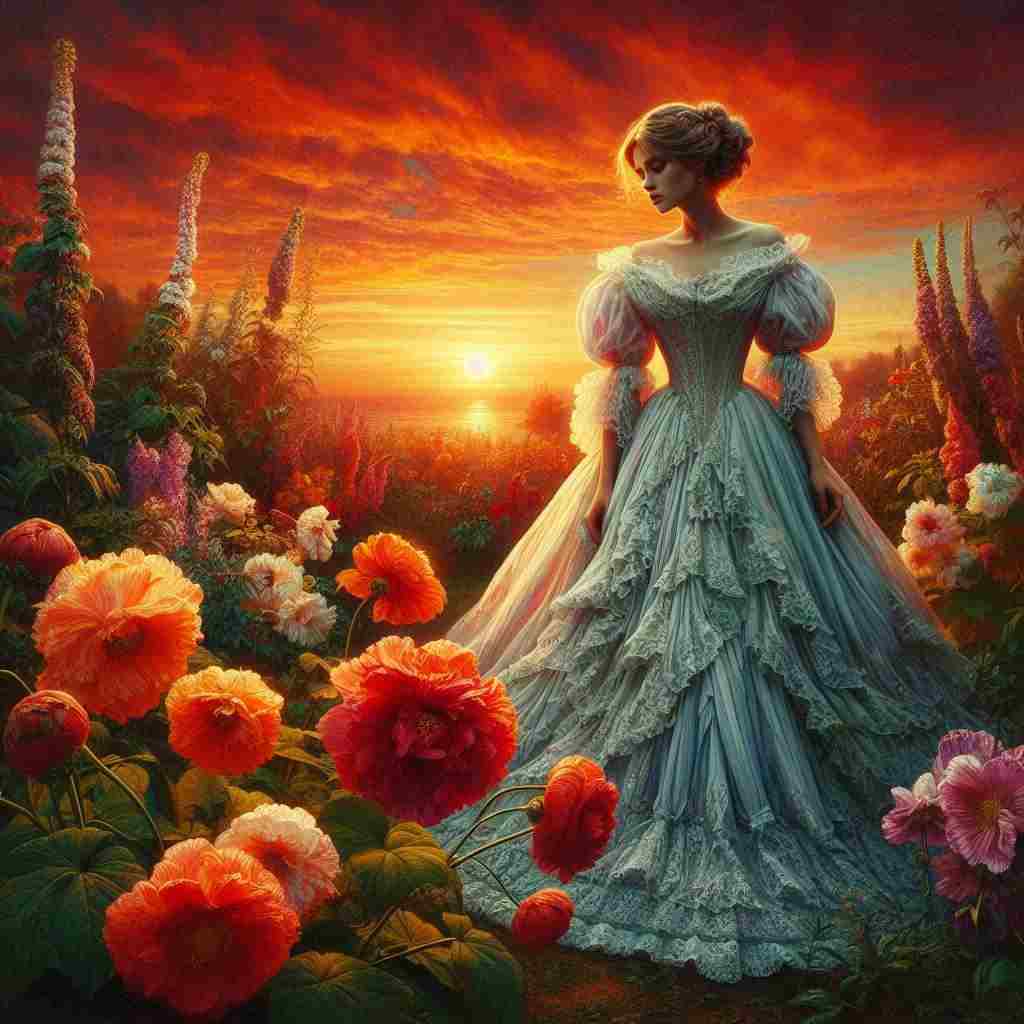3 Poems by Ella Wheeler Wilcox
1850 - 1919
Ella Wheeler Wilcox Biography
Ella Wheeler Wilcox, born on November 5, 1850, in Johnstown Center, Wisconsin, was an American author and poet whose work left an indelible mark on popular culture during the late 19th and early 20th centuries. Her life and literary career were characterized by a blend of optimism, spirituality, and a deep commitment to social causes that resonated with readers across generations.
Wilcox's early years were spent on her family's farm, where she developed a love for literature and began writing poetry at a young age. Her parents, Marcus and Sarah Pratt Wheeler, recognized their daughter's talent and encouraged her creative pursuits. This support proved crucial in shaping Wilcox's future as a writer.
The young poet's first published work appeared in a local newspaper when she was just 14 years old. This early success fueled her ambition, and she continued to submit her poems to various publications throughout her teenage years. Her persistence paid off, and by the time she reached her twenties, Wilcox had established herself as a regular contributor to several prominent magazines and newspapers.
Wilcox's breakthrough came in 1883 with the publication of her most famous poem, "Solitude." The opening lines, "Laugh, and the world laughs with you; / Weep, and you weep alone," have become part of the cultural lexicon, often quoted and referenced in various contexts. The poem's success catapulted Wilcox to national prominence and set the tone for much of her subsequent work, which often focused on themes of joy, resilience, and the power of positive thinking.
In 1884, Ella Wheeler married Robert Wilcox, a businessman who supported her literary career. Their marriage was a happy one, marked by mutual respect and shared interests in spiritualism and the occult. These beliefs would come to play a significant role in Wilcox's later works, as she explored themes of reincarnation, telepathy, and other metaphysical concepts in her poetry and prose.
Throughout her career, Wilcox was a prolific writer, producing over 30 books of poetry and prose. Her style, characterized by its accessibility and emotional resonance, made her work popular among a wide readership. Critics often dismissed her as a "poet of the people," but this label underscored her ability to connect with readers on a deeply personal level. Her verses, often sentimental and inspirational, addressed universal themes of love, loss, faith, and perseverance.
Wilcox's poetry collections, including "Poems of Passion" (1883) and "Poems of Pleasure" (1888), were bestsellers in their time. Her work was not limited to poetry, however. She also wrote novels, such as "Mal Moulee" (1885) and "A Double Life" (1890), as well as numerous essays and articles on topics ranging from women's rights to temperance.
As her fame grew, Wilcox became increasingly involved in social and political causes. She was a vocal advocate for women's suffrage and temperance, using her platform to champion these movements. Her commitment to social justice was reflected in her poetry, which often addressed issues of inequality and injustice. Poems like "The Voice of the Voiceless" spoke out against animal cruelty, showcasing her range as a poet and her dedication to various causes.
Wilcox's interest in spiritualism deepened following the death of her husband in 1916. She became increasingly involved in the Spiritualist movement, attending séances and writing about her experiences with the paranormal. This phase of her life and work, while controversial, demonstrated her openness to new ideas and her constant search for meaning and connection.
In her later years, Wilcox continued to write and lecture, maintaining her popularity well into the 20th century. Her autobiography, "The Worlds and I," published in 1918, provided insights into her life, beliefs, and creative process. It remains a valuable resource for scholars studying her work and the literary culture of her time.
Ella Wheeler Wilcox died on October 30, 1919, in Short Beach, Connecticut. Her passing was mourned by readers around the world who had found comfort and inspiration in her words. In the years following her death, her reputation suffered somewhat as literary tastes shifted towards modernism and more experimental forms of poetry. However, her impact on popular culture and her role in shaping the literary landscape of her time cannot be overstated.
Today, Wilcox's legacy is complex. While she may not be considered among the great innovators of American poetry, her work continues to resonate with readers seeking uplift and encouragement. Scholars have begun to reassess her contributions, recognizing her as an important figure in the development of popular poetry and as a voice that captured the spirit of her age.
Ella Wheeler Wilcox's life and work offer a fascinating window into the literary and cultural milieu of turn-of-the-century America. Her ability to speak to the hopes, fears, and aspirations of ordinary people, combined with her engagement with the social and spiritual movements of her time, make her a figure worthy of continued study and appreciation. As we continue to grapple with many of the issues she addressed in her work, Wilcox's poetry serves as a reminder of the enduring power of words to comfort, inspire, and effect change.
Quick Links
© 2024-2025 R.I.Chalmers. All rights reserved.
All musical arrangements, images, poet biographies, poem critiques, original compositions, and all site code are created and owned by R.I.Chalmers and protected by copyright.
Free streaming is allowed for personal, educational, and some commercial use (with attribution in commercial settings). No other use or duplication is allowed without permission from the owner.
This is a completely free music streaming service with up to 320kbps MP3 audio, with nothing hidden behind paywalls, and with no personal details required for access.



